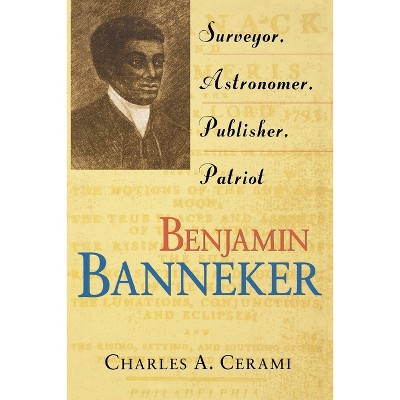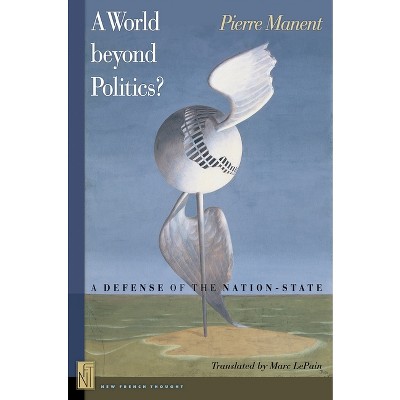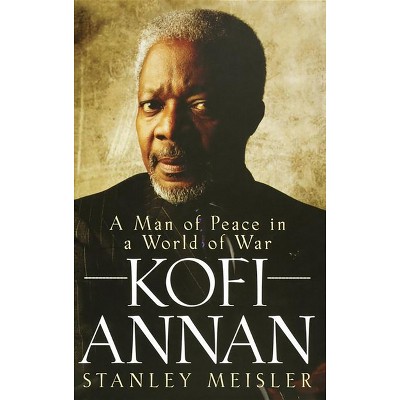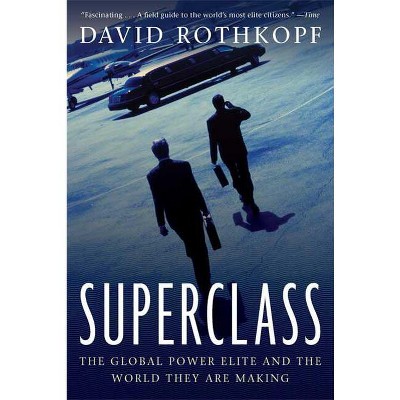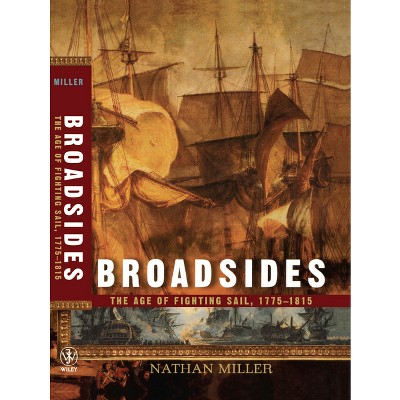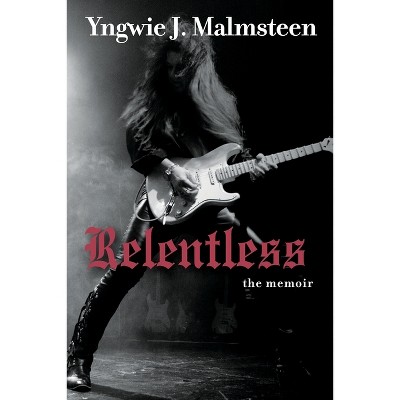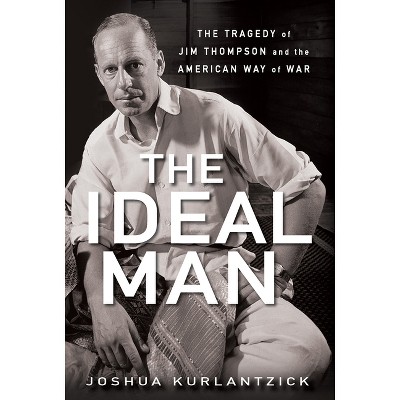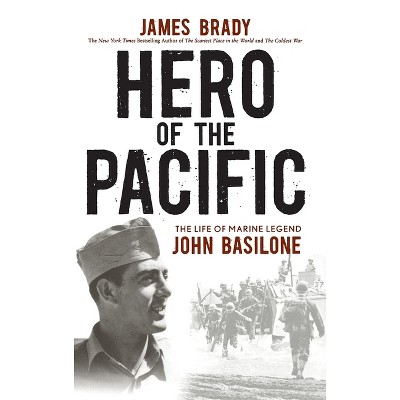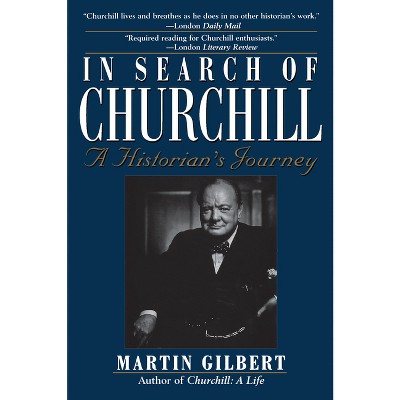Sponsored

A Shattered Peace - 2nd Edition by David A Andelman (Paperback)
In Stock
Sponsored
About this item
Highlights
- How the Treaty of Versailles is still influencing current events-with a new Foreword by Sir Harold Evans and a new Introduction by the authorFor more than half a century, it has been widely recognized that the Treaty of Versailles created the circumstances that led inevitably to World War II.
- About the Author: DAVID A. ANDELMAN is the Editor of "World Policy Journal, " the 25-year-old foreign policy magazine published by the World Policy Institute.
- 388 Pages
- History, Military
Description
About the Book
Examines how the failure of the victors at the end of World War I to create a peace settlement based on reconciliation rather than a consolidation of their own powers led to the instability of the Balkans and the Middle East, which continues to the present day.Book Synopsis
How the Treaty of Versailles is still influencing current events-with a new Foreword by Sir Harold Evans and a new Introduction by the author
For more than half a century, it has been widely recognized that the Treaty of Versailles created the circumstances that led inevitably to World War II. Less acknowledged and understood is the treaty's profound impact on many other parts of the world--an impact that echoes to this day in the Middle East, the Far East, the Balkans, and, yes, in Iraq. In A Shattered Peace, veteran foreign correspondent David A. Andelman takes a fresh new look at the Treaty of Versailles as the point of origin for many of today's most critical international issues.
In this revealing history, Andelman turns the spotlight on the many errors committed by the peacemakers that led to crises and bloodshed from Kosovo to Iraq, wars from Israel to Vietnam. Focusing on the small nations and minor players at the negotiations, including figures such as Ho Chi Minh and Charles de Gaulle who would later become boldfaced names, he traces the outcome of the deliberations through the history of the twentieth century and into the twenty-first. Andelman also paints a vivid picture of the glittering and often chaotic social whirl that accompanied the negotiations. Elsa Maxwell threw her first party; young Franklin Delano Roosevelt flirted with Parisian widows to the humiliation of his wife, Eleanor; princesses and young gentlemen in formal attire danced gaily to the hot new sound of American jazz--all this as prime ministers Georges Clemenceau and David Lloyd George ogled huge maps, dividing up territories and cementing their nations' positions as leading world powers for decades to come.
Complete with a new foreword by Sir Harold Evans, a new introduction from the author, and a never-before-published chapter on establishing a global economy, as well as insightful quotations from the diaries and correspondence of participants and previously unpublished photographs of the proceedings and their surroundings, A Shattered Peace will change the way you think about twentieth-century history, its influence on current events, and where we should go from here.
From the Back Cover
For more than half a century, it has been widely recognized that the Treaty of Versailles, founded on retribution against Germany and the Austro-Hungarian Empire, created the circumstances that led inevitably to World War II. Less acknowledged and understood is the treaty's profound impact on many other parts of the world--an impact that echoes to this day across Asia, the Balkans, and throughout the Middle East.
In A Shattered Peace, veteran foreign correspondent David A. Andelman takes a fresh new look at the Treaty of Versailles as the point of origin for many of today's most critical international issues. This revealing history exposes the powerful lessons that a six-month period in a long ago era has for us today. Andelman turns the spotlight on the many errors committed by the peacemakers that directly led to crises and bloodshed from Algeria to Kosovo and wars from Israel to Vietnam. Focusing on the small nations and minor players at the negotiations, including figures such as Ho Chi Minh and Charles de Gaulle who would later become major names, he traces the outcome of the deliberations through the history of the twentieth century and into the twenty-first. His conclusion is ominous: not only did the paternalism, ignorance, and self-serving approach of the Great Powers who sculpted the treaty lead to disastrous consequences that were predicted at the time, but current policies of the world's developed nations continue to repeat and reaffirm these same mistakes.
Andelman also paints a vivid picture of the glittering and often chaotic social whirl that accompanied the negotiations. Elsa Maxwell threw her first party; young Franklin Delano Roosevelt flirted with Parisian widows to the humiliation of his wife, Eleanor; princesses and young gentlemen in formal attire danced gaily to the hot new sound of American jazz--all this as prime ministers Georges Clemenceau and David Lloyd George ogled huge maps, dividing up territories and cementing their nations' positions as leading world powers for decades to come.
Complete with a new preface by Sir Harold Evans, a new introduction from the author, and a never-before-published chapter on establishing a global economy, as well as insightful quotations from the diaries and correspondence of participants and previously unpublished photographs of the proceedings and their surroundings, A Shattered Peace will change the way you think about twentieth-century history, its influence on current events, and where we should go from here.
Review Quotes
"The peace settlements that followed World War I have recently come back into focus as one of the dominant factors shaping the modern world. The Balkans, the Middle East, Iraq, Turkey, and parts of Africa all owe their present-day problems, in part, to these negotiations. David Andelman brings it all back to life--the lofty ideals, the ugly compromises, the larger-than-life personalities who came to Paris in 1919. And he links that far-away diplomatic dance to present-day problems to illuminate our troubled times. A tremendous addition to this vitally important subject." --Ambassador Richard Holbrooke "The peace conference in Paris at the end of World War I was the first and last moment of pure hope for peace in the history of world affairs. Our president Woodrow Wilson was the sorcerer for this hope, and he kindled great expectations in people everywhere. David Andelman, a classic reporter and storyteller, tells this fascinating tale of hope falling finally and forever on the shoals of naivete and hard-headed cynicism."--Leslie H. Gelb, former columnist for the New York Times and President Emeritus of the Council on Foreign Relations "The failed peace settlement following the Great War of 1914-1918 has been the subject of many fine books. In many respects, David Andelman's A Shattered Peace is the best of these. It is compact and compellingly written. Moreover, it explains more clearly than any other work how the failure of peacemaking in 1919 shaped later history and, indeed, shapes our own era." --Ernest R. May, Charles Warren Professor of American History, Harvard University "It is the power and fascination of David Andelman's new book, A Shattered Peace, that he shows us--with the clarity of a first-rate reporter and the drama and detail at the command of a first-rate novelist--that we are all still enmeshed in the loose ends of the Treaty of Versailles. Andelman brings us to Korea, to Vietnam, to the Persian Gulf, and to Iraq in our own vexed era. His story is
About the Author
DAVID A. ANDELMAN is the Editor of "World Policy Journal, " the 25-year-old foreign policy magazine published by the World Policy Institute. Previously, he served as Executive Editor of Forbes.com and as a domestic and foreign correspondent for the "New ""York Times," reporting from more than fifty countries in Europe, Asia, Africa, and the Middle East. He has also served as Washington correspondent for CNBC, senior editor of Bloomberg News, and business editor of the "New York Daily News." Andelman has authored two other acclaimed books, "The Peacemakers" and "The Fourth World War" with co-author Count de Marenches, and is a member of the Council on Foreign Relations. He lives in New York City and Canadensis, Pennsylvania, with his wife.
Shipping details
Return details
Frequently bought together
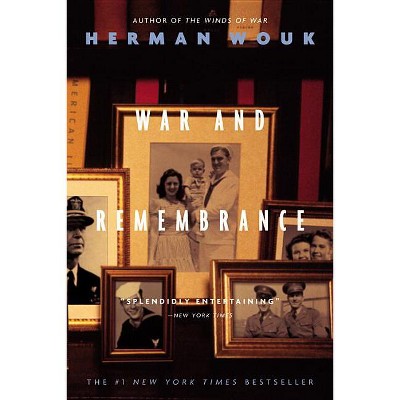

Discover more options
